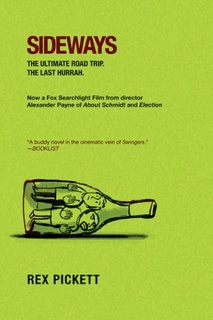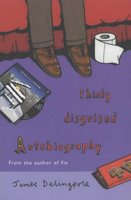
It’s a truism that speculative fiction tells the reader more about the present it was written in than about the future – a fact born out yet again by two pieces of this week’s reading.
If this fact is more evident in Ernest Callenbach’s 1975 novel Ecotopia than it is in the “Ecopolis” articles in this week’s New Scientist (17/06/2006) then that only reveals our blindness to the conventions of our own time.
In Ecotopia the pungent reek of the early Seventies issues from practically every page. The fashions, the sexual politics, the marijuana usage – all speak of a particular hippy moment and now tend to detract from the deeper intention of the book to present a vision of a sustainable society. It’s easy now to fault Callenbach for this, but equally easy to see how important it was for him to present some vision of how a change in social mores could parallel and allow a change in the wider society. For me personally a degree of uneasiness was brought on by the louche promiscuity of Callenbach’s utopia. I’m prepared to accept that this could just be my hang-up – but it also seemed wrapped up in a vision of liberated womanhood more to do with male fantasy than female emancipation. The admirable intention of presenting a more feminine society, female leadership and sexual equality felt somewhat tainted by the air of a free-wheeling Lothario who really ‘understands’ and ‘digs’ women. Again, perhaps these are just my hang-ups.
If I’ve gone on at length about these aspects of the book that didn’t gel with me, that’s only to precede my declaration that I felt pretty down with most of the rest of its vision. Ignoring the conceit of the Pacific North West seceding from the USA, much of the novel seemed to present a realistic vision of a future society.
precede my declaration that I felt pretty down with most of the rest of its vision. Ignoring the conceit of the Pacific North West seceding from the USA, much of the novel seemed to present a realistic vision of a future society.
What is interesting comparing Ecotopia and Ecopolis are the similarities of vision presented 31 years apart (that very little has been implemented across the span of most of my entire life thus far - which that 31 years also personally represents - is rather depressing.)
The proposed new Chinese suburb-city of Dongtan is pedestrianised with electric vehicles, trains, urban greenery, urban food production, mass recycling and alternative energy generation. Not at all dissimilar to Ecotopia’s San Francisco. Peer a little deeper however and the cracks appear – both in the divergence of Ecotopian and Ecopolitan visions – and in the sustainable vision of Dongtan per se.
Dongtan is a new build – an entirely new satellite city for Shanghai “20 minutes drive” away. It is thus a very different beast to the retro-fitted San Francisco in Ecotopia. In this way the city sized debate mirrors the eco-home debate. One can start from scratch and build a brand new eco-home to the highest standards possible – but not everyone can do this. Our existing buildings also represent decades if not centuries of embodied energy that we are likely to waste (which we can ill afford) if we reject them, demolish them to build anew. If we could do it all, we could only do so by exploiting even more excessive amounts of the global energy supply –and this vision is clearly not sustainable on a local or global scale. We must follow a more earthy path of converting our existing housing stock to greater sustainability – retro fitting.
To the great credit of New Scientist it makes a critical analysis of Dongtan’s eco-credibility. The Dongtan vision proposed as a possible model for China’s future cities aims for a per-resident carbon footprint of 2.2 ha. This both exceeds the current footprint of the rural Chinese population (1.6 ha) that are migrating to become the new city dwellers (thus increasing China’s total footprint) and the “idealised global per capita footprint” (1.8ha – based on 2006 population levels). Dongtan is therefore not as bad as our conventional cities – but does not present in itself a sustainable vision. We could perhaps hope that developments like Dongtan will be bridging solutions to ever more sustainable implementations – but would we be correct in doing so? Retrofitting Shanghai for sustainability may have been a more useful activity. In fact, given that so much of Shanghai is itself new-build, one wonders where the true vision for sustainability lies. That Dongtan is perceived as having value as a tourist attraction perhaps indicates something of its showcase function.
The ecological problems faced by China will inevitably lead them towards some lower energy solutions, and the world can usefully benefit by learning from them. But will China put sustainability before growth? If it does not, can anything it does be truly sustainable?
Ecotopia is a steady-state economy that has sloughed off the demon driver of ‘growth’ – that totemic bugbear of capitalism eating away the world like a necrotic virus. It is the vision of capitalism, its modus operandi and belief systems which are the contemporary conventions permeating the speculations of Ecopolis. We can only hope that 31 years hence those seem as amusing and of their time as some of Callenbach’s seventies-ism. Otherwise we are well and truly screwed.
 Picked up Not Fade Away by Jim Dodge last week and read it in a few days, and now all of a sudden I’ve read all his novels. I’ve got to say that Fup is still my favourite, and I’m not sure whether this book or Stone Junction
Picked up Not Fade Away by Jim Dodge last week and read it in a few days, and now all of a sudden I’ve read all his novels. I’ve got to say that Fup is still my favourite, and I’m not sure whether this book or Stone Junction










